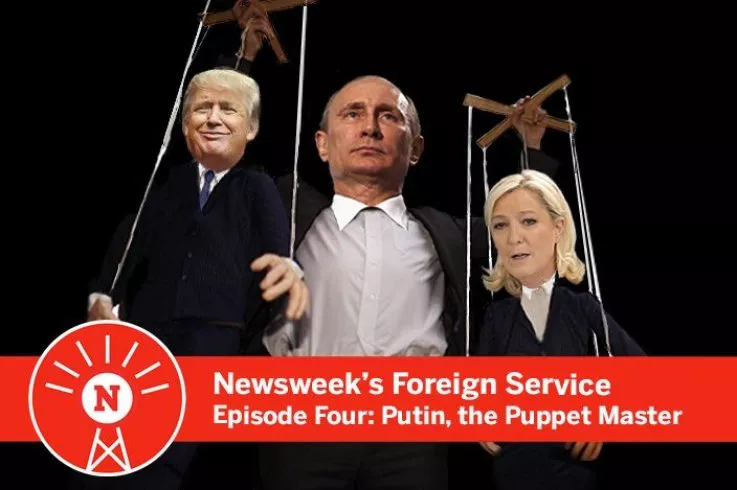.
German politics appear to keep shifting, albeit slowly. The old extreme form of stability of the Kohl era is gone, nowadays parties can lose giant chunks of their base in a few years, or multiply their votes for no apparent reason.
Here's my summary of the current situation:
Still the biggest party, and apparently the only one that still maintains the "Volkspartei" reputation; trying to represent (almost) everyone, in principle electable for all population groups (though the "C" as "Christlich"/"Christian" is a bit of a deterrent to non-Christian people of faith). They are still allied with the CSU and thus present only in the 15 states where there's no CSU.
The CDU is facing three fundamental issues:
1) An entire generation of politicians who want to get rid of the career glass ceiling that's the Merkel establishment.
2) Voters who slowly notice that the CDU didn't solve a single problem since the early 90's.*
3) The CDU is not seeking to trigger, magnify and exploit fears among the electorate due to the "Volkspartei" approach, or at least not much. Their half-assed exploitations of the organised crime, terrorist, salafist, Reichsbürger (anarchists), Identitäre (neonazis) and paedophiles bogeymen is peanuts compared to the staple of fearmongering, scaremongering and hatemongering that conservatives exploit in many other Western countries. This leaves opportunities to other right wing parties.
In regard to military affairs it's noteworthy that soem CDU politicians haven't really gone past the end of the conscription. That topic was brought up again, but I don't think it will go anywhere. Keep in mind it was brought up during the low news summertime.
Bavarians, the Texans of Germany. The CSU is present in but one of 16 states, and though quite competent at governing it (some corruption in the CSU is completely understandable given that they governed Bavaria for 60 years without any other government ever cleaning up).
They share issue #1 with the internal opponents of Merkel, do not share issue #2 with the CDU (I don't like many of their policies, but they do occasionally solve or even prevent problems) and they understood issue #3. The CSU has a history of loudmouth and aggressive behaviour anyway, so exploitation of fearfulness is second nature to them.
These supposed social democrats are rather Blairites and as far as I can tell nobody seems to consider them to be champions of the poor and lower middle class any more. The entire party's existence appears to be due to inertia, and it's withering away rapidly. The left wing of the party deserted in disgust of Schröder's policies long ago (mostly to LINKE and greens, I think), and the remnants have hardly anything to offer to anyone. Regardless of who you are; you can find a party that represents you better than the SPD. I suppose that almost all of the remaining SPD voters vote for the SPD out of habit or because they know some particularly convincing SPD politician.
The greens have a reputation as a party of academics rather than as an environmental protection party nowadays.
They keep shooting themselves in the foot by means of their reflexive siding with minorities and thus with what's in English widely called "social justice warriors". There's hardly ever any underdog or minority that the German greens do not side with, which doesn't exactly sound like smart politics. They could probably be a 30...40% party nation-wide if they hadn't this "pro-minority" reflex. They're still doing quite fine, as they don't have many no-go issues for voters save for the reflexive siding with minorities. In fact, they are en route to become the biggest party in some particularly wealthy areas and appear to become the second-largest party in some more states. Their minority focus may actually fade as and if they grow into a "Volkspartei".
They are liberals in the literal sense (not "liberals" = social democrats, as in the U.S.), and this party of liberals is extremely close to "business", not at all close to "employees" or even "unemployed people". They could have joined the governing coalition, but bailed out of the coalition talks for still not really publicly understood reasons. The FDP is notable for its extreme volatility. Anything ranging from not passing the 5% threshold and thus not entering the Bundestag up to 20% of the Bundestag seats appears possible with the FDP.
Politically they do little but providing stalwart defenders of civil rights and rule of law for the ministers of justice offices and helping the wealthy and rich.
Corruption may be at work in the background; the party has some extreme finance issues and some of their pro-business policies such as the infamous VAT tax break for hotels were fishy.
They're dead. They didn't get their internal party workings right and eventually failed for good in elections.
The one relevant left wing party. They're in governing coalitions in some Eastern states, but at the federal level they haven't been in power ever and thus bathe comfortably in ideological purity, which makes them quite insufferable to most people regardless of how well they point out actual problems of workers, retirees and unemployed people. The orthodoxy wing appears to be winning against internal efforts to steer towards 'realpolitik'. I suppose they won't become part of a governing coalition at the federal level unless they would be needed to keep neonazis from power (which won't happen). Last but not least, their majority loves to side with minorities.
Founded as a party with a weird predominance of economics professors that rebelled against the common European currency and CDU inactivity, they suffered two waves of hostile takeovers first by the far right and then by the even farther right. Nowadays they're still maintaining a minimal deniability regarding their neonazi party nature, but that may break away any time. Ever since the takeovers they went all-in on fearmongering and exploitation of fears, but most of them are stupid enough to be true believers. Those are no cynical politicians who exploit fears of dumb people to gain power and then redistribute income from the middle class to the rich.
They have the stable roughly 4-6% neonazis-in-Germany base plus a fluctuating and not really predictable base of protest voters. Anything ranging from 4-20% of the vote seems possible for them, and 6-16% is probably what one should expect in the next elections.
The AfD could easily collapse from infighting or if some other party succeeds at attracting the protest voters (the Realpolitik wing of the far left tries such a thing). Fearmongering is always possible, so actually solving any issues that the AfD fearmongers about is rather not going to make it go away. Nor should any sensible person expect a fearmongering-based party to actually solve any problems; to solve actual problems would debase the party (which discourages the not-so-true believers), and all-too often the fearmongering isn't about real problems anyway.
Polls about how many votes the parties would get if there were federal elections next Sunday:
https://www.wahlrecht.de/umfragen/
The next federal elections will be no later than 2021, but the elections in the states could in the meantime change the 2nd chamber of the parliament (the
Bundesrat), which has powers in regard to legislation that burdens the states.
There's no sensible coalition in sight that would address real issues with real, competent reforms. I suppose that Germany is going to enter the 2020's on autopilot.
related:
http://defense-and-freedom.blogspot.com/2017/01/current-politics-in-germany.html
http://defense-and-freedom.blogspot.com/2013/09/money-in-german-elections.html
http://defense-and-freedom.blogspot.com/2008/06/german-party-landscape.html
S O,
*: This is but a slight exaggeration.
A top CDU politician, Schäuble, recently said in an interview: "Wenn die jungen Leute sich nicht wehren gegen uns Alte, dann geht es
schief. Wir Alte können bei jedem Problem gut erklären, warum eine
Lösung im Prinzip nicht möglich ist." (Something goes wrong if the young people don't push back against us old ones. We old [politicians] can explain for every problem why a solution isn't possible in principle.")
THIS is the problem with the CDU conservatives in power in Germany: They don't think that problems can be solved, thus they don't try to solve any problems. Why don't they think that problems can be solved? Well, many problems could be solved by accepting some other, smaller problem to pop up. That would be an improvement (just as buying food solves the hunger problem, but costs money), and it's also a change. Those people are real conservatives; they abhor change. Thus they cannot solve problems whenever this requires change.
Again; German CDU conservatives are real conservatives; they don't want change. Just stay the course. They're not like American conservatives who want radical change towards some unworkable 1920's gilded age-like fantasyland.
.







.jpg)